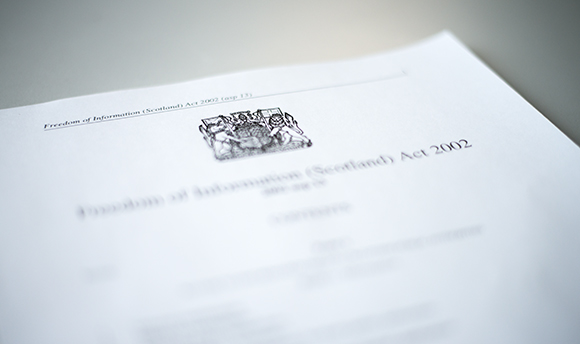Learning, Teaching and Assessment Strategy 2025-2030
This strategy provides a clear vision for how we can deliver inclusive, high-quality education. By articulating QMU priorities to all staff locally (on-campus), globally (TNE partnerships) and QMU Online, we aim to contribute to creating a better society through education, research and innovation by providing a supportive, creative and inclusive learning environment in which students and staff thrive.
The strategy will be operationalised and informed through action plans and guidance collaboratively developed by stakeholders which include schools, divisions, programme teams, professional services, partners and students. This strategy sits under the QMU Strategic Plan and alongside other strategies, most notably, the QMU Student Experience Strategy.
This learning, teaching and assessment strategy is based on the QMU core values of intellectual curiosity, social justice, ambition, valuing the individual, and encouraging collective support.
We value a sense of community for our staff, our learners and our partners, locally, globally and online.
Learning, teaching and assessment (LTA) is our core purpose at QMU across all programmes and modes of delivery - on campus, online, and through collaborative partnerships. We are dedicated to creating transformative educational experiences that support and empower our students to reach their full potential. By defining and articulating a clear, integrated institutional approach to learning, teaching and assessment, we support our learners’ aspirations, optimise learner success on QMU programmes and strengthen QMU's reputation as a forward-thinking university.
The development of this strategy took place throughout 2024-25 in response to developments across the Scottish tertiary education sector, the UK higher education sector, and at QMU. Issues such as the cost-of-living crisis, changing demographics, generative AI and other emerging technologies all affect the demands on learners, graduates, staff and the institution and thus shape this strategy and its enactment.
This strategy aims to stimulate consistent good practice and innovation across three major pillars: Pedagogy, Curriculum and Assessment Design and Learner Competencies. These pillars are reflective of QMU’s purpose and values and give learners and staff direction and support which will enable QMU to respond to evolving and changing priorities and developments at sector and institutional level over the next five years. Infrastructure as well as Staff Support and Development, Student Partnerships and Regulations, Policies and Procedures are key enablers of this strategy (please refer to figure 1)
Figure 1: Diagram showing the strategic goals and enablers for strategy implementation

The following tabs outline both external and internal drivers that are likely to remain relevant over the period of this learning, teaching and assessment strategy and thus continue to inform pillars and enablers.
- Learners increasingly expect flexible, personalised, and on-demand learning experiences, including assessment and feedback. These evolving expectations reflect changing patterns of engagement, with students seeking an approach that supports both their academic success and their health and wellbeing.
- Rapid and sometimes disruptive technological advancements present both challenges and significant opportunities for innovation in learning and teaching— on campus, online, and globally. Emerging tools such as generative AI are expected to play a transformative role, reshaping assessment practices and influencing evolving workplace expectations around graduate competencies and influencing approaches to academic integrity.
- Societal and policy imperatives call for greater social mobility through improved access to higher education, alongside enhanced value by fostering entrepreneurial mindsets in learners
- Inflationary costs have implications for learners balancing competing priorities of work and studies, changing how and when learning is accessed and requiring classroom time to be well spent. Cost pressures require institutions to prioritise interventions.
- Regulatory frameworks change locally, nationally and globally and have implications on curriculum design. Learner choices about where and how to study result in rapidly changing cohort demographics that have implications for learning, teaching and assessment.
- Quality enhancement frameworks, such as the Scottish Tertiary Quality Enhancement Framework and the Scottish Tertiary Enhancement Programme (STEP).
- Levels of student satisfaction with QMU programmes is inconsistent, ranging from sector leading to significantly below benchmark. QMU aims to ensure good practice in learning, teaching and assessment is practiced consistently across the portfolio and across time.
- Institutionally, the commitment to widening participation on campus, globally and online, and a strategic objective of improving attainment and retention which links to the graduate attribute of resilient learners have implications for how learning is designed and assessed. All learners belong.
- QMU has a strong sense of being an inclusive community, giving learners agency as partners in learning design as well as recognising the importance of relationships and compassion for both learners and staff.
- Learners are actors in an environment characterised by research application and knowledge exchange (i.e. KEIF strategy and entrepreneurial campus strategy). The links between this and aspects of graduate attributes are a core driver of curriculum design and pedagogy.
- Links with professional, statutory and regulatory bodies as well as sectorial consortia are in the fabric of the institution.
- QMU’s global network of transnational education partners presents unique opportunities to collaborate across diverse cultural contexts.
- QMU’s strategic commitment to asynchronous online learning has accelerated capabilities in digital pedagogies and learning design for wider innovation in learning, teaching and assessment. Staff development and support is required to ensure all staff feel confident in their digital capabilities.
- QMU’s quality assurance and enhancement that ensures high quality learning and teaching through validation and review processes.
At QMU we encourage evidence and context informed approaches to learning that include inclusive, creative and transformative pedagogies to support learner engagement and agency. We take pedagogy to mean how we teach. These ambition statements foster a sense of belonging and inclusion and support all learners to achieve.
01 - Active pedagogies to support learner agency
- Ensure active learning is integrated to improve engagement and retention
- Articulate choice of context specific inclusive pedagogies
- Create opportunities for student-led pedagogies to develop partnership approaches
- Support staff to be research and evidence informed and use scholarship to underpin pedagogic practice
02 - Digital practices and pedagogies
- Develop learners to be flexible and confident in their use of digital platforms contextualised within disciplinary and industry sectors
- Ensure digital accessibility across our community of staff and students
- Collaborate and share learning across digital platforms to improve our processes and practices
- Support learners and staff to be critical, ethical and to demonstrate integrity in their use of digital technologies
03 - Provide inclusive teaching and learning that recognises wellbeing
- Promote a culture of inclusion by drawing on expertise and experience across QMU
- Recognise intercultural values and diversity to meet the needs of all learners
- Promote the wellbeing and mental health of staff and students in teaching and learning
- Support pedagogies to promote EDI, decolonising and sustainability, e.g. neuro-affirming, anti-ableist and anti-racist
Our QMU values underpin the strategic objectives for curriculum and assessment design, in particular our commitment to intellectual curiosity, social justice, and valuing the individual. These objectives foster learning, promote equity, and provide students with a means to recognise and communicate their ongoing development.
01 - Meaningful curriculum design
- Focus curricula on the application of knowledge and skills to real world contexts (e.g. work experience, placements) and make curricula meaningful and authentic to learners
- Recognise and respond to mode (e.g. QMU Online) and context (e.g. TNE partnerships)
- Embed research-informed digital capabilities in curricula
- Make curricula inclusive, draw on principles of universal design for learning
- Embed equality, diversity, inclusion (EDI), decolonising and sustainability into curricula informed by sector initiatives e.g. compassionate pedagogies; trauma-informed practice; Sustainable Development Goals
02 - Programme approach to learning
- Design curricula and map assessments across a programme, guarding against fragmented modular silos
- Use sector (SCQF) and subject benchmarks to map content and skills progression across programme levels
- Articulate assessment scaffolding (e.g. formative assessment, links between module assessments) and feedback across a programme
- Ensure realistic and achievable content, taking into account level, subject, learner (and educator) effort, mode, context and time needed for chosen pedagogical approaches
03 - Fair, inclusive and equitable assessment practices and processes
- Design accessible and equitable assessments
- Ensure alignment between learning outcomes, teaching and assessment
- Communicate assessment expectations clearly
- Include scaffolding and formative feedback as an integral part of assessment
- Promote consistent and robust assessment processes
04 - Feedback
- Provide targeted, individualised, constructive feedback that includes suggestions on how to improve future work
- Include positive and motivational feedback
- Help learners manage and enact feedback
- Ensure feedback is timely and shared when it will have most benefit
The QMU values of intellectual curiosity, social justice, ambition, and valuing the individual frame the competence development of our learners for success at university and in employment. These objectives detail effective learner strategies to develop agile competencies and personal attributes essential for professional success and lifelong learning in a shifting global landscape.
01 - QMU graduate attributes
- Contextualise and map graduate attributes at every level
- Bring graduate attributes to life in partnership with learners and their aspirations
- Encourage learner-initiated development and opportunities
- Provide co-curricular opportunities
02 - Subject competencies
- Develop subject expertise aligned to subject and professional benchmarks
- Foster academic and professional literacies through knowledge exchange
03 - Student learning strategies
- Cultivate feedback literacy through valuing, engaging in, giving, and receiving constructive feedback within academic and professional settings
- Foster the ability to work autonomously, responsibly and collaboratively both as an individual or in a team
- Promote continuous reflective practice through critical thinking, self-awareness, academic integrity and the ability to adapt behaviours
- Develop subject and discipline specific literacies (information, written, spoken, visual) to effectively articulate ideas and engage in academic and professional discourse.
To achieve our strategy, we are committed to working in collaboration with colleagues and students on campus, online and globally. We have identified four strategic enablers which run across all three pillars of the strategy.
Infrastructure
We recognise that there has been significant investment in some areas of our learning environment and infrastructure, for example the success of our outdoor learning provision and future spaces project, and we aim to maximise the benefit of these. We will prioritise and invest in our physical teaching spaces and the digital infrastructure to support inclusion and collaboration. We will draw on the expertise of learning design and technologies from across the institution to improve the learning and teaching experience of staff and students, encouraging integration of technical software and systems solutions.
Staff Support and Development
We will provide staff development that will encourage reflective practice and cross- institutional dialogue between online, on campus and global colleagues and students. We will draw upon scholarship and research, and sector quality enhancement to support the sharing of good practice through the creation of materials and guidance. We will encourage collaboration and promote the dissemination of scholarly outputs globally to ensure excellence in learning, teaching and assessment whilst keeping our values of social justice, belonging and inclusion at the heart of what we do. We will ensure staff are supported in developing digital capabilities. We will ensure our staff are recognised and rewarded for their engagement and practice. We will prioritise the continuous professional development of teaching and support staff to achieve Advance HE fellowship through our accredited and taught routes including a Post Graduate Certificate in Academic Practice.
Student Partnerships
Student partnership is embedded in Scotland’s Tertiary Enhancement Framework (TQEF) and we are committed to ensuring that students are central to shaping the quality of their learning at QMU. We will build upon existing approaches such as PALS and create multiple partnership opportunities to ensure those involved in partnership activities reflect our student body and enhance the student experience. We will provide guidance and will support staff to design partnership approaches in their teaching, curriculum design and delivery.
Regulations, Policies and Procedures
Policies and processes play a vital role at QMU by providing a cohesive framework to guide our institutional priorities and practices. We will promote consistency and collaboration across departments, updating our policies and processes to streamline efforts, foster shared goals, and address emerging challenges, ultimately driving meaningful and sustainable improvements in learning, teaching and assessment. Such policies and processes include any regulations, guidelines and templates that govern aspects of learning, teaching and assessment.
Evaluation and clear measures of success are essential to ensure impact is understood, progress is monitored, and continuous enhancement is informed by evidence. Rather than setting up key results at institutional level, we will then report on targets through action plans to articulate progress made.
Key measures to evidence high level impact of our strategy include:
- Award, progression and graduate outcome gaps
- Graduate employability
- Student retention
- TQEF outcomes
- AdvanceHE Fellowship benchmarks
- Student engagement and satisfaction measures
- Internal recognition of excellence in learning and teaching
- Internal and external dissemination of learning and teaching related outputs
- Staff digital capabilities


